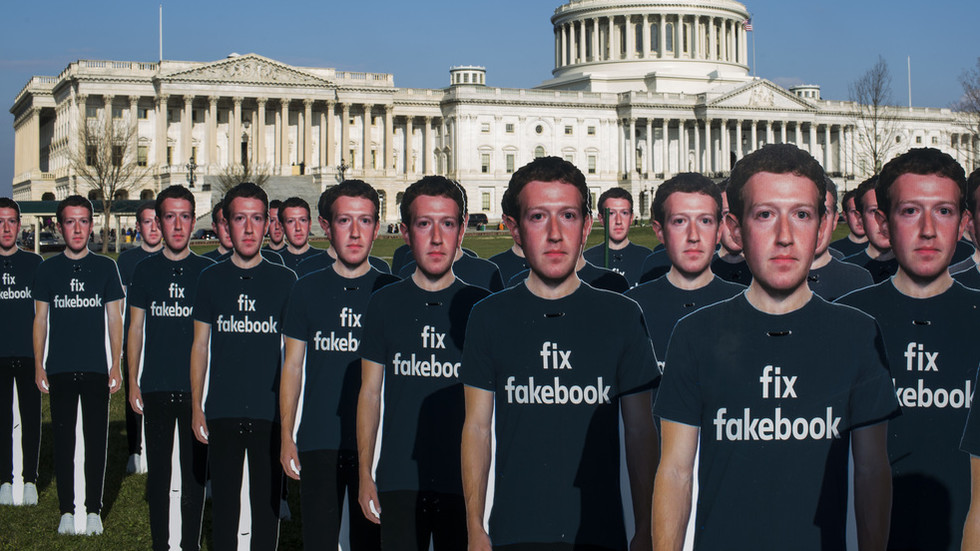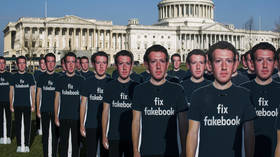
Broadcasters launched Public Spaces Incubator to foster ‘fact-based communication’ free of hate and propaganda

Avaaz-led protest against Facebook © Getty Images / Zach Gibson
Public broadcasters from Canada, Switzerland, Belgium, and Germany have launched a new platform aimed at fostering “fact-based communication” on the internet while shielding participants from what they describe as the growing threat of propaganda. Called Public Spaces Incubator, the project was announced on Wednesday by the German public broadcaster ZDF in collaboration with the CBC (Canada), SRG (Switzerland), and RTBF (Belgium).
The platform seeks to “enable civic engagement and democratic discourse in digital space away from hate comments and increasing disinformation,” according to the press release. The aim is to show how state-backed media can “create independent and fact-based communication spaces in the digital world.”
Supposedly free from “commercial aspects,” Public Spaces Incubator claims to be exclusively interested in “open and respectful online discussions” and “the interests of the users.” It’s not clear what happens when those two are at cross purposes, however.

Read more
“Democracy thrives on an open and fair dialogue in society,” ZDF director Norbert Himmler said in the press release, warning against leaving such conversations to “the major American platforms.” Public Spaces Incubator, he said, was meant to provide a “public service alternative” to the increasingly violent, hate-filled platforms currently dominating the social media scene.
The initiative is a collaboration with New_ Public, whose co-founder, Eli Parisier, also co-founded Avaaz, an activist group notorious for advocating ideologically-motivated online censorship. Parisier is credited with coining the term “filter bubble” in his 2011 book of the same name, in which he drew attention to the danger of social media algorithms that filter out dissenting views. New_ Public’s other co-founder, Deepti Doshi, hails from Meta, formerly Facebook – a platform arguably synonymous with the filter bubble.
The battle against “disinformation” has attracted intense attention in recent months from international entities like the World Health Organization and the United Nations, as well as elite gatherings like the World Economic Forum. It was confirmed last week that the US, UK and Canada all deployed military-grade technology, including psychological operations, to suppress so-called disinformation that ran counter to their respective governments’ Covid-19 policies.
Civil liberties groups have warned that this term (along with its cousins “misinformation” and “malinformation”) is ill-defined and easily weaponized to censor dissenting views, even in democracies that have legal protections against such abuses.




